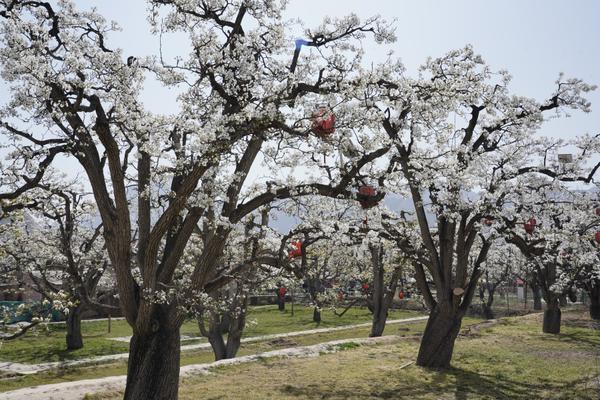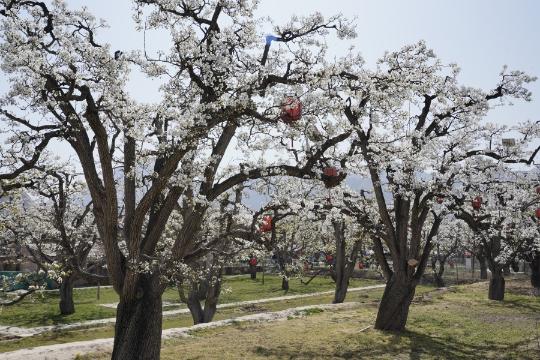3 sites added to key UN agricultural list

Gaolan Shichuan Ancient Pear Orchard System in Gansu province. (Photo provided to chinadaily.com.cn)
China has added three new sites to the United Nations' list of Globally Important Agricultural Heritage Systems, bringing the country's total to 25 — more than any nation in the world, the Ministry of Agriculture and Rural Affairs announced on Tuesday.
The newly designated sites are an ancient pear orchard system in Gansu province, a freshwater pearl farming system in Zhejiang province and a white tea cultural system in Fujian province, according to the UN's Food and Agriculture Organization.
Located in Shichuan township in Gaolan county, Gansu, the pear orchard system is known for its centuries-old trees and traditional farming techniques. Local farmers have passed down practices such as high-altitude pruning, pest control using flower dusting and underground storage for fruit preservation.
Recognized as a genetic center for Chinese pear cultivation, the site began large-scale production in 1522 and is home to more than 9,400 pear trees over 100 years old. The trees, which grow around homes, fields and hillsides, are highly resilient to floods and droughts, while also helping stabilize soil and retain water.
"The agroforestry system also supports a diversity of crops, livestock and soil biodiversity, forming a resilient and sustainable farming model adapted to the Yellow River Basin," the FAO said.
In Deqing county, Zhejiang, the Deqing Freshwater Pearl Mussels Composite Fishery System integrates aquaculture, agriculture and craftsmanship.
The 800-year-old co-cultivation model supports livelihoods through pearl farming, livestock rearing, cultural tourism, fish and crop production.
"This circular system enhances biodiversity, food security and cultural heritage, offering global insights into sustainable farming, ecological balance and rural development," the FAO said.
The system is also a critical refuge for aquatic biodiversity, supporting more than 140 mussel species, including Hyriopsis cumingii, and over 40 freshwater fish species, making it one of East Asia's key freshwater biodiversity hubs.
In Fuding, Fujian, the white tea cultural system blends favorable geography, climate and centuries-old traditions. The area produces renowned varieties such as Fuding Dabaicha and Fuding Dahaocha, using traditional seed propagation methods. Ecological practices in the tea gardens help improve resource efficiency and pest management, the ministry said.
The region has also developed a unique processing method — natural withering without roasting — making it the only white tea technique recognized as an intangible cultural heritage in China, according to the FAO.
Tea plantation accounts for nearly 70 percent of household income in the area, with proceeds supporting crops, fruits and livestock. Terraced landscapes and intercropping methods enhance soil and water conservation while regulating the microclimate, offering insights for agroecological approaches worldwide.
Since its launch in 2005, the FAO has recognized 89 such systems across 28 countries.

